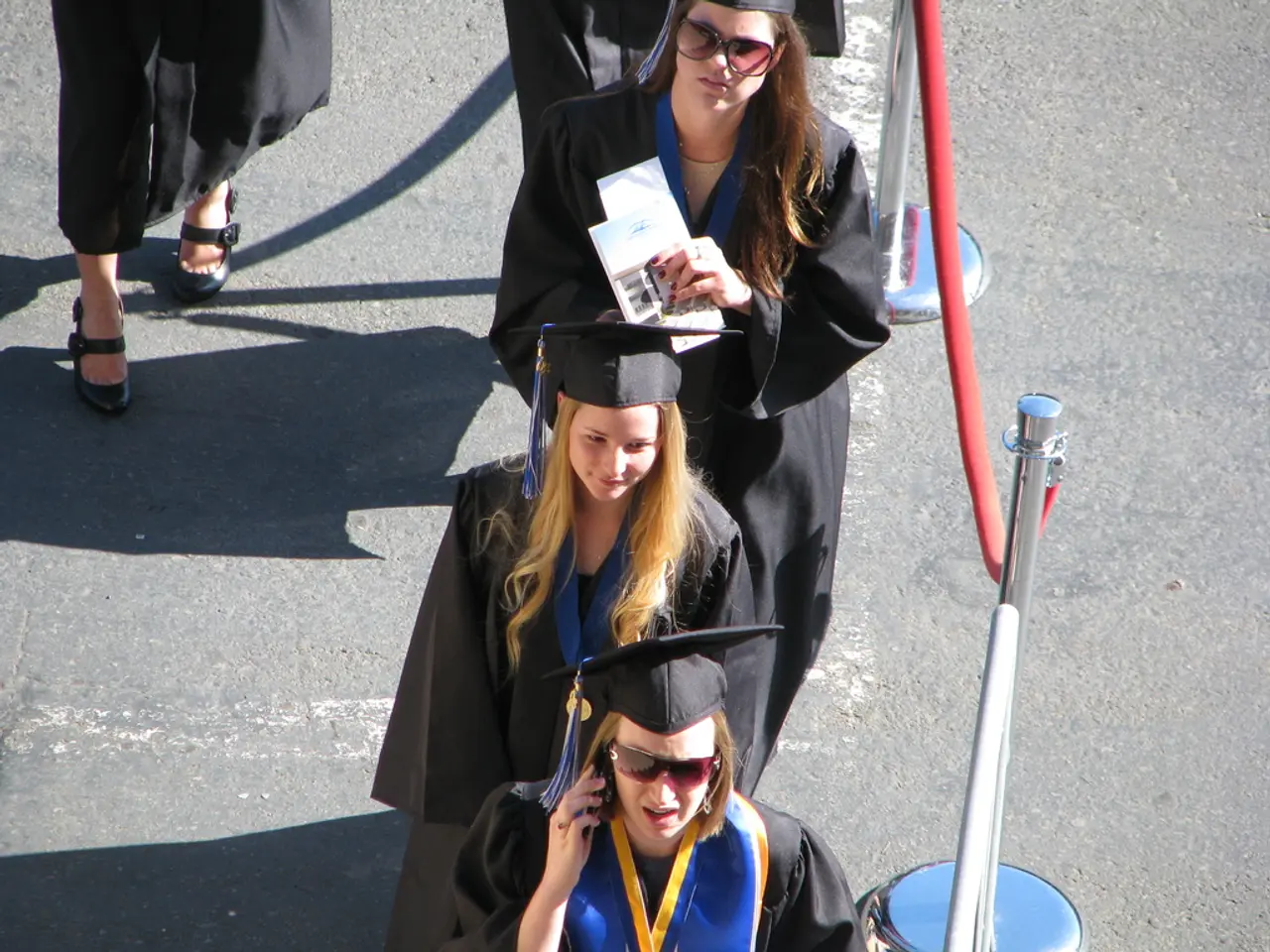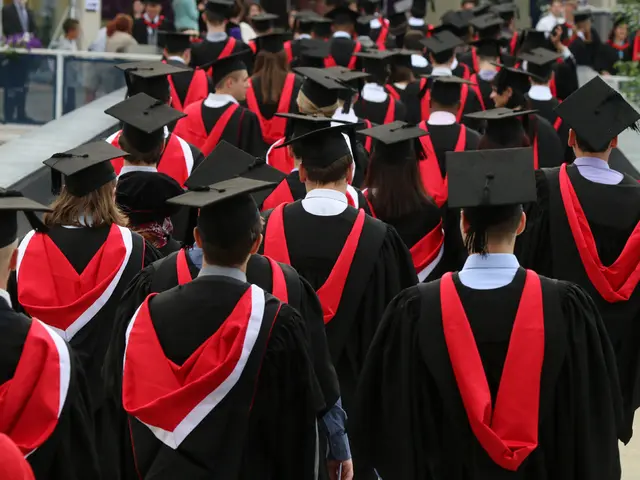Colleges withdraw race-based programs amidst imminent legal challenges
In the wake of the Supreme Court's decision in Students for Fair Admissions v. Harvard (SFFA), colleges and universities across the U.S. are navigating a significant shift in their diversity efforts. The ruling, handed down in June 2023, banned the use of race-conscious admissions policies as unconstitutional, effectively ending race-based affirmative action programs [1][4][5].
Federal authorities, including the Department of Education, have since issued strong guidance to institutions, urging them to immediately cease all race-based considerations in admissions and related policies, avoid indirect proxies or third-party contractors to circumvent the ban, and ensure compliance or face potential loss of federal funding [4]. This broad enforcement encompasses admissions, scholarships, and campus programs.
As a result, race-specific pipeline programs designed to increase college access for historically underrepresented minorities must be re-evaluated and likely restructured to comply with the new legal landscape. Direct race-based criteria are no longer permissible [4][5]. However, some programs may survive if they focus on race-neutral criteria or discuss race indirectly through individual experiences without preferences [3].
One such program that has been affected is the Multicultural Summer Research Opportunities Program (MSROP) at the University of Minnesota. After a civil rights complaint charging that MSROP was discriminatory because it admitted only students of color, the university altered the program and whom it serves [6]. Another program, Creando Comunidad at the University of Wisconsin-Madison, was renamed after a complaint from the Equal Protection Project. Applicants for the renamed program now must show "demonstrated interest or experience in promoting equity, inclusion, and social justice for communities of color" [7].
The Equal Protection Project, a conservative legal group, has been actively challenging services for students based on race and gender. Jocelyn Ricard, a Ph.D. candidate in neuroscience at Stanford School of Medicine, credits the University of Minnesota for her entrance into the research field through MSROP [8]. Ricard's research focuses on substance-use disorders and how inequity and disadvantage affect brain function.
Despite the changes, Black and Hispanic students remain underrepresented in college and graduate programs, especially in the fields of science, technology, engineering, and math. Research suggests that race-based support and pipeline programs do increase the entry and persistence of underrepresented students into certain fields, especially STEM [9].
Some programs, like the Latinx On The Rise Mentoring Program organized by the NWA Hispanic Leadership Council and partnered with the University of Arkansas, still match Hispanic students with professionals. Chris Molina, a senior and first-generation student, received guidance through the program and landed a corporate internship at Sam's Club [10].
However, campuses may be halting or altering offerings unnecessarily due to fear of public scrutiny or being sued. Derek W. Black, professor of law at the University of South Carolina, expressed this concern [11]. William A. Jacobson, Cornell law professor and founder of the Legal Insurrection Foundation, said his group's goal is "to stop discriminatory conduct" [12].
The CRWN program at the Massachusetts Institute of Technology, originally designed for undergraduate women of color, is now open to all undergraduate students. Ciboney Reglos, a former program member who graduated in May, is disappointed by the removal of the explicitly BIPOC aspect of Creando Comunidad at the University of Wisconsin-Madison [7][13]. Reglos found being around others who shared similar experiences to be one of the most valuable things she took away from the program.
This new landscape presents a challenge for institutions to maintain diverse and inclusive environments while complying with the legal constraints. As institutions adapt, it remains to be seen how they will balance the need for diversity with the prohibition on race-based policies.
References:
- Students for Fair Admissions v. Harvard
- Department of Education's Dear Colleague Letter
- Princeton University's Response to SFFA Decision
- New York Times: Supreme Court Bans Race-Based Admissions Policies
- Washington Post: Supreme Court Bans Race-Based Admissions Policies
- Star Tribune: University of Minnesota Alters Multicultural Summer Research Opportunities Program
- Wisconsin State Journal: University of Wisconsin-Madison's Creando Comunidad Program Changes Name
- Star Tribune: University of Minnesota MSROP Graduate Helps Pioneer Research on Addiction and Brain Function
- National Science Foundation: Women, Minorities, and Persons with Disabilities in Science and Engineering
- Northwest Arkansas Democrat-Gazette: Latinx On The Rise Mentoring Program Helps First-Generation Students Land Internships
- The Chronicle of Higher Education: Supreme Court Ruling on Affirmative Action Leaves Campuses in Turmoil
- Cornell Daily Sun: Legal Insurrection Foundation Targets Cornell for Discriminatory Practices
- Madison.com: University of Wisconsin-Madison's Creando Comunidad Program Changes Name
- The Supreme Court's decision in Students for Fair Admissions v. Harvard has led to a reshaping of diversity efforts in higher education, forcing institutions to reconsider race-specific pipeline programs that aim to increase college access for historically underrepresented minorities.
- As a result of the ruling, some education-and-self-development programs may transition from direct race-based criteria to race-neutral ones, focusing on individual experiences without preferences that discuss race indirectly.
- Despite the changes, there is concern that the new legal landscape might lead to general-news about campuses halting or altering offerings unnecessarily due to fear of public scrutiny or being sued, potentially impacting innovation and education inequality in fields like science, technology, engineering, and math.




